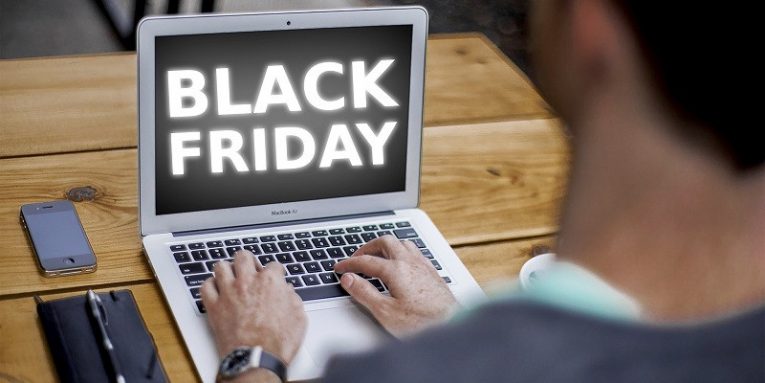7 Tips That Will Make Your 2019 Black Friday and Cyber Monday Shopping Experience Safer

Black Friday and Cyber Monday can offer huge discounts and help you save a lot of money on preparations for the upcoming biggest celebrations of the year. Unfortunately, scammers see it as an excellent opportunity to trick users and fill their pockets with swindled money or obtain sensitive information that could be sold on the dark web or used for future attacks. Thus, we suspect that they have already prepared 2019 Black Friday scams that they may use on Cyber Monday as well. Consequently, we recommend learning how to protect yourself while shopping online and on physical stores if you do not want your shopping experience to be ruined by scammers or hackers.
According to Finder.com, Americans are expected to spend around $87 billion during Black Friday and Cyber Monday. Their survey also revealed that 52% of respondents had purchased something that they later regretted the previous year. While realizing you bought products you do not need might be very unpleasant, the truth is that things could be much worse. Imagine what could happen if you would acquire goods on a fake online store or give out your sensitive information to scammers. Unfortunately, doing these things could result in you having your identity stolen or losing the money you worked hard for in vain. To make sure it does not happen, we recommend preparing for this year’s Black Friday and Cyber Monday by learning how to make your shopping experience safer. Below we present 7 cybersecurity tips that we believe to be most important for those who wish to shop safely online and avoid 2019 Black Friday scams.
1. Watch out for phishing emails
During Black Friday and Cyber Monday, you might get emails with various offers for discounted goods. If they contain links, we recommend having a closer look at their URL addresses. Fake links can look very similar to URL addresses of legitimate online shops of known retailers,’ so you have to be cautious with your Black Friday and Cyber Monday emails. For example, the legit link of Amazon is amazon.com, while a fake URL address could look like amazonn.com, amazon.com.shopping.com, and so on. On the other hand, if a link seems to be leading into an online store that you have not heard about ever before, you may want to search for more information about it.
What could happen if you do not scrutinize links and research shops promoted on emails that could come from hackers? Sadly, if you end up buying products on a phishing website, you could reveal your banking information and other sensitive data to hackers who might misuse it for various malicious purposes.
2. Be careful with pop-ups and other ads
Advertisements offering things for extremely low prices might seem tempting, but instead of interacting with them, you should take a moment to think. Perhaps the offer is too good to be true? It probably is if the suggested price is a few times lower than what you have seen in other shops. Also, you should be suspicious if a pop-up seems annoying, for example, it might keep reappearing on top of your screen even if you have already closed it. If it happens, you may want to check if a website that is displaying the suspicious ad is truly reliable. Additionally, you should research the site that such an advertisement might claim it will redirect you to.
3. Use your credit card
Some people prefer debit cards because they do not like spending more money than they have. The truth is that buying things for which you do not have the needed money yet is not the only reason to get a credit card. Many users choose to have a credit card because it is safer than a debit card. Usually, credit cards are not directly linked to a person’s banking account. Thus, if someone obtains your credit card, it is unlikely that they will be able to access money in your banking account. Another huge plus is that if someone buys anything with your credit card, it is the bank’s money that will be spent, and you will not have to pay for it if you report the fraudulent purchase.
4. Visit only legitimate online shops
Just like the links you receive via email, you should scrutinize URL addresses encountered while surfing the Internet. Legit or safe links should start with https://, and you should see an uncrossed lock image near a site's URL address. Of course, even if you see an uncrossed lock image, it does not necessarily mean that a website is reliable.
Malicious sites that are supposed to imitate genuine online shops might look very convincing, but it is possible that you may find some differences if you take a closer look. Perhaps, the store shows unusual or extremely annoying advertisements that you have never seen before? Also, we recommend checking if a site that seems to be legit is set up the same way as the original store.
5. Learn about skimmers
Skimmers might not be as popular nowadays as they were some years ago, but they are not forgotten yet either. A skimmer is a tiny device that can be fixed on ATMs, credit/debit card payment terminals, and machines alike. Such devices can record keystrokes and read the information on your credit/debit card, which can be used to clone your card.
Specialists suggest inspecting ATMs and machines alike before swiping your card if you do not want to become a victim of skimming. In some cases, you can see visible glue traces or loose parts that may fall off while using minimum strength. An ATM with a covered/broken or no camera above it should also be viewed as a red alert. Also, keep in mind that any cashier could be a scammer, so you should always watch your credit/debit card carefully after handing it to a shop worker. There are cases when scammers take cards to the back to use a skimmer, so anything happening out of the ordinary should be observed.
6. Do not shop using public Wi-Fi hotspots
Cybersecurity specialists are always warning users no to connect to their social media profiles, banking accounts, or do anything else that requires entering sensitive information while being connected to public Wi-Fi hotspots. Nonetheless, even knowing it could be dangerous, some users still choose to risk their cybersecurity. It is risky to use public Wi-Fi connections because a hotspot you might want to connect to could be hacked.
Also, cybercriminals can easily create a hotspot of their own that might have a name similar to the title of a Wi-Fi connection offered by your favorite café or a shop. Connecting to hijacked or malicious hotspots could allow hackers to steal your sensitive information, drop malware on your device, show you fake Black Friday or Cyber Monday offers, and so on. If you had no idea about the dangers of using public Wi-Fi connections, we recommend reading this blog post.
7. Use a reputable antimalware tool and a password manager
If you want to avoid 2019 Black Friday scams and stay safe while shopping online even after these events, you should protect your device by installing a legitimate antimalware tool. Such a tool could alert you if you end up interacting with suspicious content. Plus, you could use it to scan questionable material received via email.
Another thing that you should do is ensure that your banking account, online payment accounts like PayPal, and your shopping accounts on stores like Amazon or eBay are all protected with secure passcodes. If hackers cannot take over such accounts, they will not be able to purchase anything at your expense or take your money. The easiest way to create unique passwords that would be nearly impossible to guess is to employ a password manager. Such software can also memorize your login credentials for you, so you do not have to worry about forgetting them.
Moreover, dedicated tools like Cyclonis Password Manager can not only create strong passwords but also insert your payment information for you so you would not need to type it. It would not only allow you to shop faster, but also protect your sensitive data from malicious sites that could be recording your keystrokes. To learn more about Cyclonis, you should continue reading here.
All in all, shopping on Black Friday or Cyber Monday could be more dangerous than usual, but you should be fine as long as you do not give in to temptations and take extra precautions that we suggested in this article. If you do, we believe you should be able to protect yourself from 2019 Black Friday scams, whatever they might be. One last advice we wish to give you is to follow cybersecurity news carefully before and during the Black Friday and Cyber Monday events, so you would learn about what scammers might be up to this year in time








